
Jun 8 , 2019
By TEMESGEN MULUGETA ( FORTUNE STAFF WRITER )
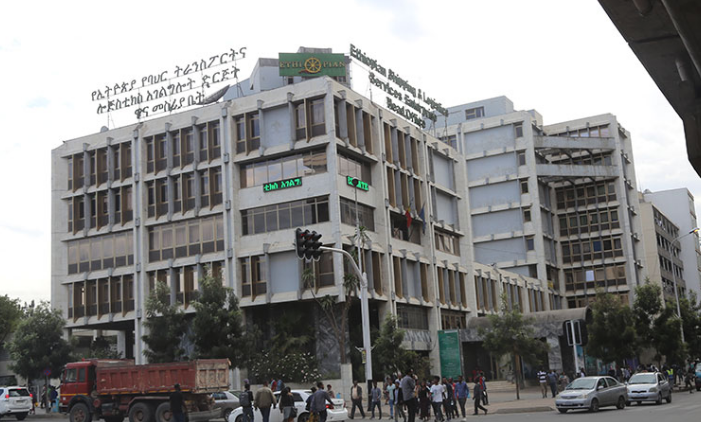 The Enterprise plans to cover 70pc of the cost with loans from the Commercial Bank of Ethiopia and the rest from its own budget.
The Enterprise plans to cover 70pc of the cost with loans from the Commercial Bank of Ethiopia and the rest from its own budget. The state shipping giant has begun the process of procuring 150 heavy trucks and 12 car carriers with an investment of one billion Birr to transport freight through the Ethio-Djibouti corridor.
The trucks, with capacities to move goods in 20-foot and 40-foot containers, are planned to replace 123 ageing Sinotruk vehicles and 38 Mac Trucks that have been in service for over 15 years and are currently parked at Qality Dry Port. The trucks will be additions to the 475 trucks the Ethiopian Shipping & Logistic Services Enterprise currently operates.
The procurement aims to speed up inland freight transportation service from Djibouti and improve service efficiency and competence of the logistics sector, according to Wondimu Denbu, deputy CEO of the Enterprise in charge of corporate service.
The Enterprise plans to cover 70pc of the cost with loans from the Commercial Bank of Ethiopia and the rest from its own budget.
"Our loan request was approved by the Bank two months ago," said Wondimu, adding that the procurement will be floated as an international tender in the coming weeks.
The trucks will service the import and export of items to and from the seven operational dry ports and Djibouti port, where an aggregate of 24,000 containers are handled at a time, and where 90pc of the country's trade is carried out. Modjo Dry Port, established a decade ago, hosts 78pc of this shipping and logistics services.
Ethiopia's shipping and logistics operations are considered weak and expensive, according to the World Bank's latest logistics performance index that ranks Ethiopia 117 out 190-plus countries for the efficiency of its logistics operations.
The Enterprise, which operates 11 vessels, of which nine are dry cargo ships with a carrying capacity of 400,000tn, had procured 215 new heavy trucks four years ago from Renault Trucks, and it also has two oil transporting vessels, each capable of carrying 42,000tn of oil.
The Enterprise started with 60 heavy trucks with a total lifting capacity of 2,400tn of dry cargo and added 205 trucks five years ago when it acquired Comet Transport SC, raising its fleet size to 265.
One of the prominent business people engaged in the import-export business celebrates the procurement of the trucks, forecasting that it will lessen the logistics hassle they currently face.
"Due to a shortage of vehicles, we can’t transport edible oil stored in Djibouti," said the businessperson.
He also claims that in the last two months the transportation cost has increased to 180 Br a quintal from 100 Br.
However, Kassahun Abberu (PhD), who has experience in the logistics sector for two and a half decades, believes that the procurement alone will not bring a significant change in the logistics sector.
"Even with the new trucks, the Enterprise doesn't meet the demands during the peak seasons," said Kassahun. "Four years ago we suggested the Enterprise equip itself with 4,000 heavy trucks that are required during peak seasons, which it didn't consider."
Kassahun recommends the government involve the private sector in the business by allowing it to import the trucks with duty-free privileges to meet the demand.
PUBLISHED ON
Jun 08,2019 [ VOL
20 , NO
997]

Radar | Feb 18,2023
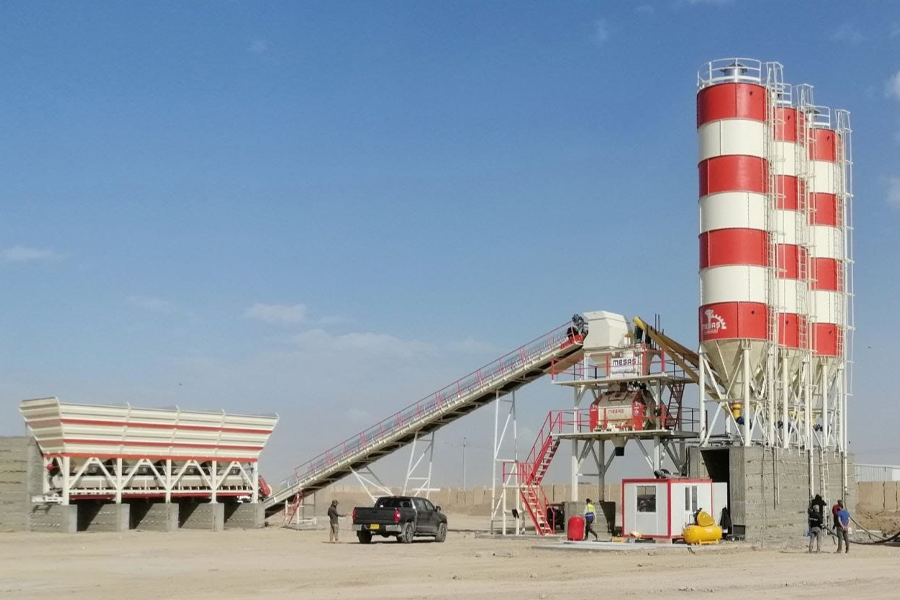
Radar | Nov 03,2024

Fortune News | Mar 07,2020
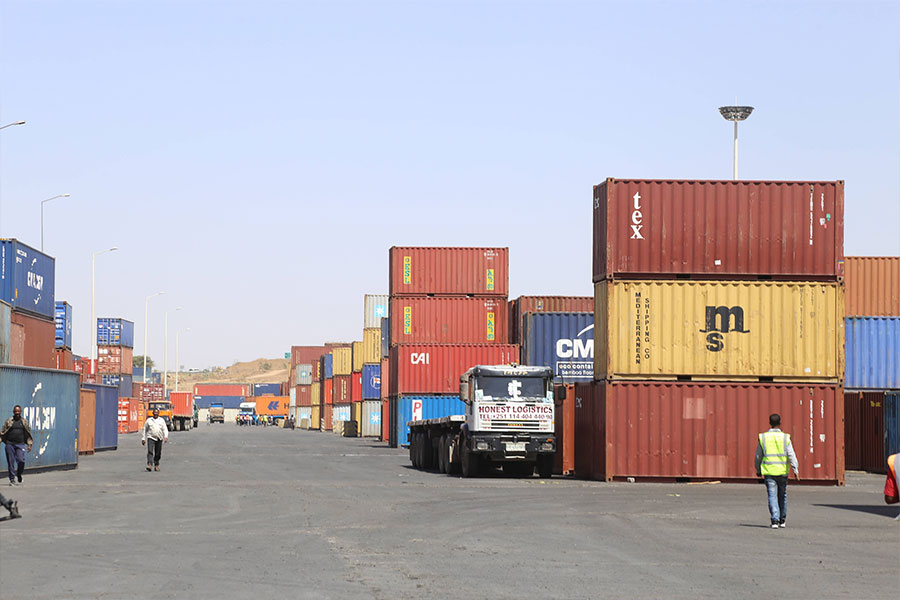
Fortune News | Aug 28,2021

Radar | Aug 16,2020
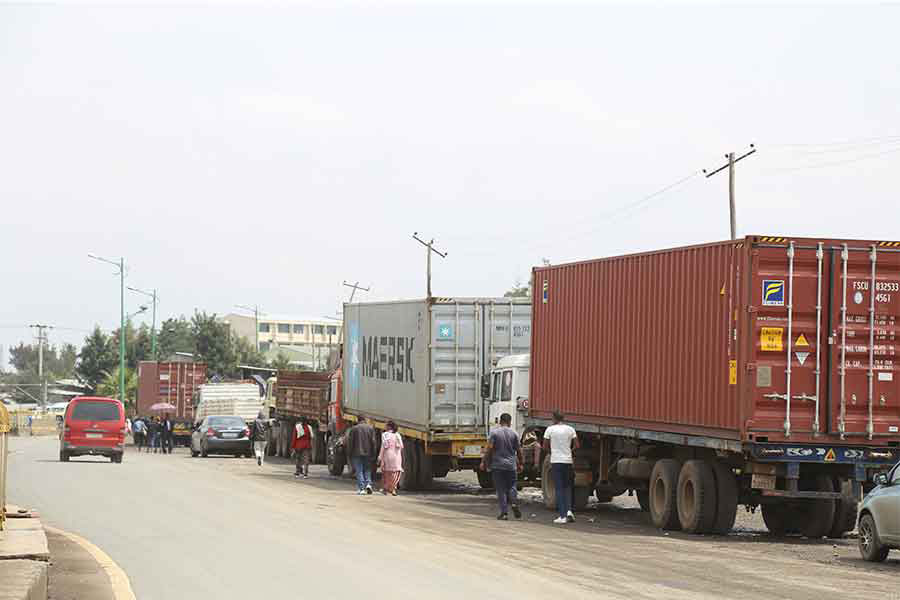
Fortune News | Aug 06,2022

Exclusive Interviews | Jan 22,2022
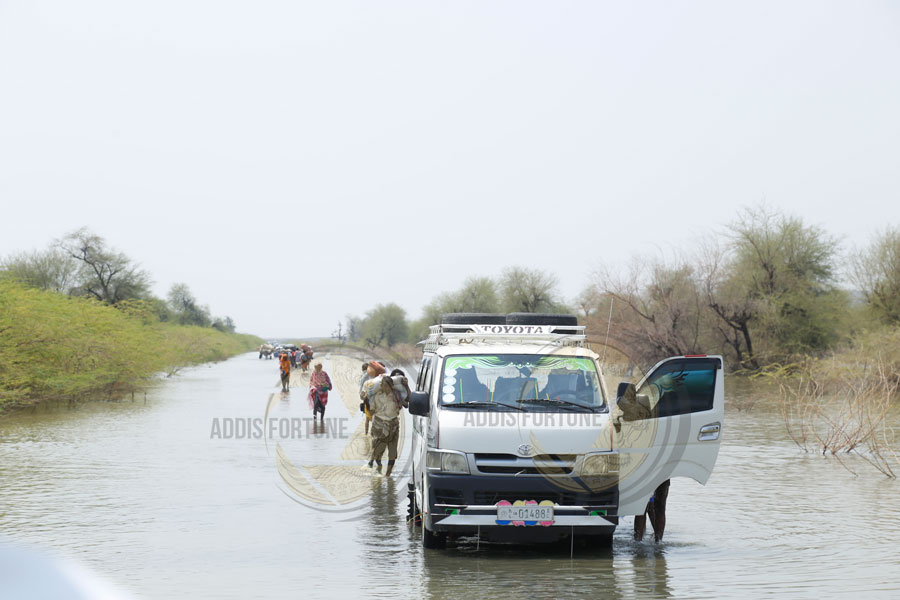
Agenda | Sep 19,2020

Fortune News | Jun 12,2021

Editorial | Jun 07,2020

Dec 22 , 2024 . By TIZITA SHEWAFERAW
Charged with transforming colossal state-owned enterprises into modern and competitiv...

Aug 18 , 2024 . By AKSAH ITALO
Although predictable Yonas Zerihun's job in the ride-hailing service is not immune to...

Jul 28 , 2024 . By TIZITA SHEWAFERAW
Unhabitual, perhaps too many, Samuel Gebreyohannes, 38, used to occasionally enjoy a couple of beers at breakfast. However, he recently swit...

Jul 13 , 2024 . By AKSAH ITALO
Investors who rely on tractors, trucks, and field vehicles for commuting, transporting commodities, and f...

Oct 25 , 2025
The regulatory machinery is on overdrive. In only two years, no fewer than 35 new pro...

Oct 18 , 2025
The political establishment, notably the ruling party and its top brass, has become p...

Oct 11 , 2025
Ladislas Farago, a roving Associated Press (AP) correspondent, arrived in Ethiopia in...

Oct 4 , 2025
Eyob Tekalegn (PhD) had been in the Governor's chair for only weeks when, on Septembe...